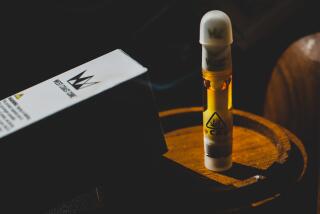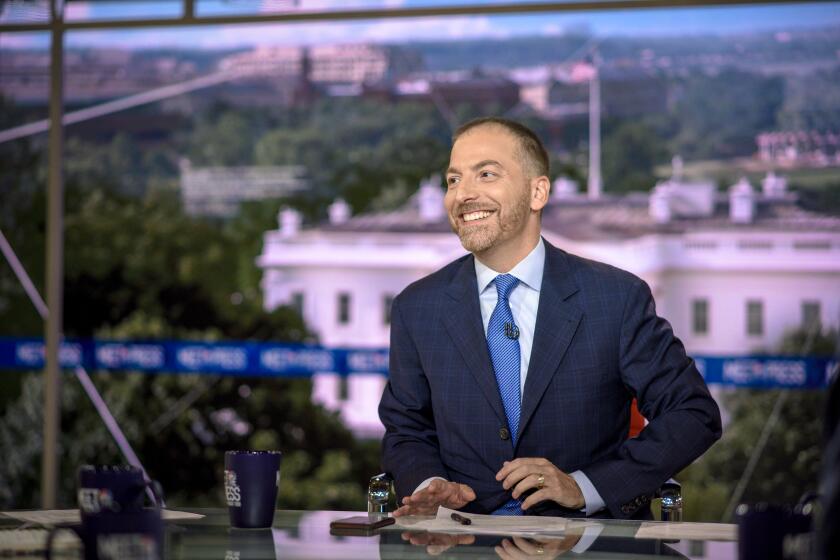Teen Tobacco Sales Persist, Study Finds
- Share via
WASHINGTON — Of the nation’s shopkeepers who sell tobacco products, 40% sell to young people under 18, even though all 50 states prohibit tobacco sales to minors, according to a new government study.
California does substantially better than the national average, although its noncompliance rate is still a hefty 29%.
In the last year, however, sales of tobacco products to underage youth in California have dropped 26%--because of vigorous enforcement of new state laws that require compliance checks of tobacco retailers and signs at every retail outlet and that fine retailers who sell to minors, according to the California Department of Health Services.
To check the national noncompliance rates, the Substance Abuse and Mental Health Administration worked with state officials and teenage inspectors, who entered about 60,000 retail establishments and attempted to buy tobacco products.
Vice President Al Gore released the study of national retailer compliance rates at the same time that he announced a $7.5-million advertising campaign to inform retailers and customers about the new carding requirements. Gore likened waging war against tobacco to running a marathon--he recently ran one--in which the race gets harder the longer it goes.
“I was recalling what it felt like at that 20-mile mark and what they say about the last 6.2 miles being the hardest is really, really true,” said Gore, who was joined by Secretary of the Department of Health and Human Services Donna Shalala.
“President Clinton and I want to reduce youth smoking by half over the next seven years but we’ve got to get moving and that’s why Congress must pass bipartisan, comprehensive anti-smoking legislation by this summer,” said Gore.
As if to prove Gore’s analogy about the difficulties of enacting tobacco legislation, local and county officials--including Los Angeles County--announced just an hour before Gore’s press conference that they will lobby against any federal tobacco legislation that stops their lawsuits against the tobacco companies.
One problem the administration and Congress face is that every day more interests line up to get their share of the billions of dollars tobacco companies have offered to pay to end the litigation brought by governments and private plaintiffs.
Local governments believe that their claims are especially meritorious since many pay a share of the costs of their states’ Medicaid programs and also provide health care for the uninsured, who often are treated in county hospitals and clinics. Medicaid is the joint federal-state health care program for the poor and disabled.
“One in every three people--2.6 million people--in Los Angeles County is uninsured. We are incurring enormous costs for treating tobacco-related diseases,” said Los Angeles County Supervisor Zev Yaroslavsky, who also appeared at the press conference.
“Sixty percent of our real property taxes just go to health care costs, not all tobacco-related. But the point is that’s an exorbitant amount of money and we feel that counties deserve their fair, equitable share of monetary damages,” Yaroslavsky said.
Los Angeles County spends between $300 million and $400 million a year on the treatment of tobacco-related illnesses, he said.
The county sued the tobacco industry in August 1996 shortly after San Francisco sued.
County officials--many of them in town for a meeting of the National Assn. of Counties--worry that if Congress enacts comprehensive tobacco legislation, the money will be divided between the states and the federal government but leave out cities and counties or nullify their lawsuits.
The tobacco industry is offering to pay billions of dollars as part of a proposed settlement among 40 states’ attorneys general, who sued the industry. However, Congress must pass legislation for several key provisions sought by the industry to go into effect, including the termination of existing lawsuits by governmental entities.
In the proposed settlement, it is unclear whether counties would be paid for their share of tobacco-related health costs. However, there is no question that the frontlines of the tobacco wars will be fought at the local level.
More to Read
Get the L.A. Times Politics newsletter
Deeply reported insights into legislation, politics and policy from Sacramento, Washington and beyond. In your inbox three times per week.
You may occasionally receive promotional content from the Los Angeles Times.










